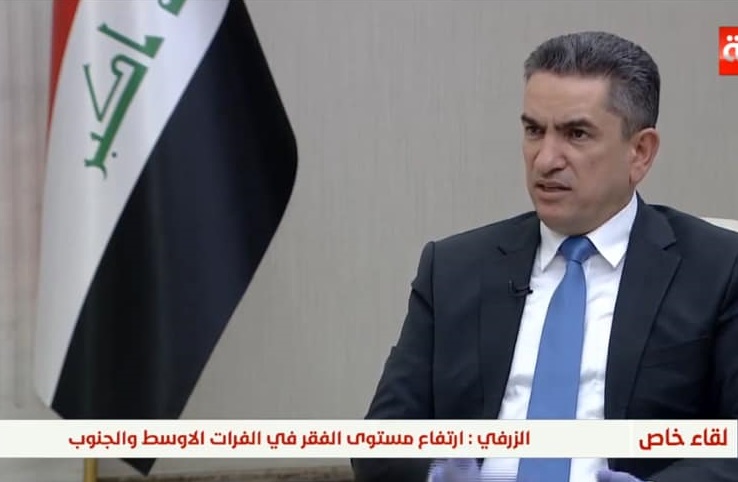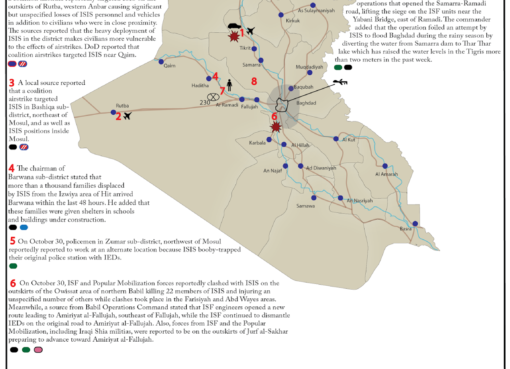Prime minister designate says government could be unable to pay half of the salaries of 3m-strong workforce next month
Chloe Cornish in Beirut, Asmaa al-Omar in Erbil
Iraq’s prime minister designate has warned that the oil price collapse means the government could be unable to pay half of its public sector salaries next month.
Driven by the twin shocks of plummeting economic demand due to coronavirus and a price war between Saudi Arabia and Russia, oil hit an 18-year low last week, trading at near $20 a barrel. This has severe repercussions for Iraq, which depends on crude sales for 90 per cent of government revenues.
“Next month, we won’t be able to secure half of the salaries, this is the truth,” Adnan al-Zurfi, the Iraqi premier said on Sunday in an interview with Iraqi state television. “This means that you will experience true suffering,” he warned.
Political patronage, cronyism and a desire to appease public opinion has swollen Iraq’s public payroll since the US-led invasion of Iraq ousted dictator Saddam Hussein in 2003.
Today about 3m people out of Iraq’s population of 39m work for the government, up from 1.2m in 2003, according to a study by the London School of Economics.
The dominance of the public sector means any disruption to public sector salaries will have drastic implications for the entire economy, according to Yesar al-Maleki, managing director of the Iraq Energy Institute.
“We are reliant on the public sector to basically finance the economy,” Mr al-Maleki said. The institute estimates that about $5bn a month is needed to cover government expenses, but that current oil prices will leave Iraq with a monthly fiscal deficit of about $2bn.
Baghdad had budgeted for Iraq’s oil to be sold at an average price of $56 per barrel, but the average price for March was about half that at $28.45, according to the oil ministry.
Public sector hiring freezes were introduced in 2014, after another oil price collapse and the fight against Isis hurt government revenues. But those restrictions were eased last year, with the government pledging thousands more jobs to appease protesters after weeks of demonstrations against corruption and the failure of the state to deliver employment and essential services.
If public hiring remains uncontrolled, “we will drown, and we will reach a stage where we cannot pay any expenses for services”, Mr Zurfi said.
Although Iraq has managed to pay salaries despite past shocks, Mr Maleki of the Iraq Energy Institute said it could be harder now because a $5.6bn credit line agreed with the IMF in 2016 had elapsed and global markets were in turmoil.
Mr Zurfi is the second man to be appointed prime minister designate this year, after the previous premier resigned in the face of mass anti-government protests. Mr Zurfi has less than two weeks to appoint a cabinet.
Source: Financial Times, APRIL 6, 2020
https://www.ft.com/content/3afc240b-2a3d-49df-b3c5-f5427222a5d9








Comment here